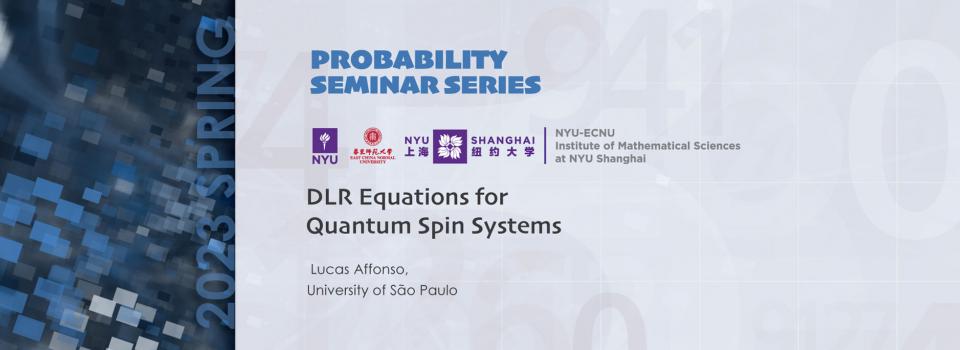
Abstract:
For the construction of rigorous mathematical theories of physical phenomena one must give a clear mathematical meaning of some of the fundamental objects of it. With equilibrium statistical mechanics this is no different, and many physicists and mathematicians in the last century spent time trying to give a meaning to equilibrium states in the thermodynamic limit. Two well-established conditions for equilibrium are the KMS condition, proposed by Haag, Hugenholtz, and Winnink, for general quantum systems, and the DLR equations, proposed by Dobrushin, Lanford, and Ruelle for classical systems. Since these conditions both relate to the notion of equilibrium, a natural question is whether or not they are related. During the 1970s, some papers were dedicated to answering this question, which was fully understood by the introduction, by Araki and Ion, of the so-called Gibbs condition for equilibrium for quantum systems, which is equivalent to the KMS condition but reduces to the DLR equations when an interaction is classical after some calculations. Due to the difficulties related to its constructions, some mathematical-physicists have raised the question if there should be another characterization more closely related to the DLR equations, i.e., in terms of conditional expectations. In this talk, we will report on some recent results obtained in this direction in constructing a specification theory more suited to handle quantum spin systems and also how these can be used to define equilibrium states through what we call Quantum DLR equations. We also comment on the relation between the states satisfying these equations and the KMS condition. This talk is based on recent work with Rodrigo Bissacot and Marcelo Laca.
Biography:
Lucas Affonso is a last-year Ph.D. student from the University of São Paulo, under the supervision of Rodrigo Bissacot. His main interests are in quantum and classical statistical mechanics, especially in phase transitions for Ising spin systems.
Seminar by the NYU-ECNU Institute of Mathematical Sciences at NYU Shanghai


